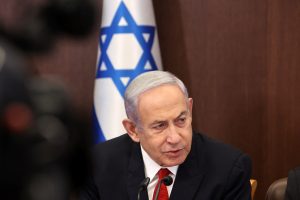Global Israel Initiative (GII)
Strategic Priority: The Indo-Pacific Arena
SIGNAL’s GII policy research will demonstrate how a growing number of middle powers are pursuing their strategic autonomy and economic security through novel formats and unique groupings. Considering what Israel brings to the table – from innovation, to addressing emerging security challenges, onto cutting edge AI, bio- and food-tech – it has even more to gain as a middle power. Through the GII, SIGNAL will showcase new opportunities materializing in the Indo-Pacific arena, especially as middle powers in that region are like-minded and increasingly alert to the relevance of the Middle East. Taken together, a broad, clear-eyed strategic vision fused with ambitious entrepreneurial diplomacy, will enhance Israel’s ability to address its most vital strategic priorities as it contends with the tectonic shifts in the Middle East and global arena.
Israel – A Middle Power on the World Stage
The Global Israel Initiative (GII) is SIGNAL Group’s new strategic initiative to advance Israel as a middle power. GII’s purpose is to strengthen Israel’s position vis-à-vis China and amid the U.S.-China great power rivalry. Therefore, its priority is the evolving Indo-Pacific arena. As a public policy disruptor, SIGNAL Group views Israel’s middle power potential as a foundational approach for securing its national interests and bolstering its agency and strategic autonomy.
SIGNAL Group’s policy and research proficiency and its global China and international policy network of experts inform the GII’s suite of programs. The programs generate opportunities for Israel’s leaders and policy establishment to rethink relations with China and the world, and to fashion new coalitions and diplomatic initiatives with like-minded middle powers in the Indo-Pacific, the Middle East, and Europe. The GII will contribute to the development of new policy options that strengthen Israel’s geopolitical position.
As China Goes Global, So Must Israel
China pursues a global approach to wield and enhance its growing influence, evident in the series of “global initiatives” launched by President Xi since 2021 – the Global Civilizations Initiative, the Global Development Initiative, and the Global Security Initiative. By championing these initiatives, prioritizing a robust presence across the UN system, and aspiring to lead the “Global South” (developing countries), China’s stated objective is to reshape the norms and principles of the international order with the implied goal of positioning itself at its epicenter.
China’s policies and diplomatic actions emanating from these initiatives could undermine Israel’s national interests. The Chinese-brokered Saudi-Iranian deal has benefitted Iran in ways that may ultimately harm Israel’s regional position and possibly undercut the potential of the Abraham Accords. Given that the U.S.-China great power rivalry has become a defining feature of an evolving multipolar world with deep implications for the Middle East, Israel’s ability to pursue its national interests and priorities vis-à-vis China and beyond will require expanding its diplomatic/strategic outreach as a middle power.
Middle powers such as Japan, UK, France, Australia, Sweden, Singapore, and South Korea advance their national interests and enhance their influence by launching and actively participating in initiatives and partnerships – be they formal or informal, regional or global, bilateral or multilateral (including “mini-lateral”). Committing resources to diplomatic innovation and entrepreneurship often results in these countries “punching above their weight” and realizing interests otherwise out of reach. In recent years, Israel has demonstrated itself as a middle power in its immediate neighborhood – be it through the trilateral strategic partnership with Cyprus and Greece, the East Mediterranean Gas Forum, the Negev Forum, or I2U2.
Israel is not only a regional power – it has unrealized potential as a middle power on the world stage. By applying its “start-up nation” entrepreneurial spirit to its diplomatic engagement across the global arena, and specifically in the Indo-Pacific, Israel can hedge against risks associated with China’s growing inroads in the Middle East.



